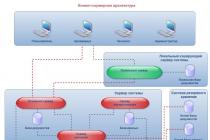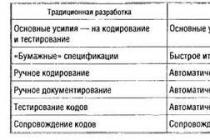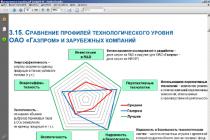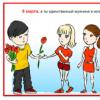Federal Law 66 on horticultural and other associations (66-FZ dated April 15, 1998) is one of the fundamental documents governing private farming in suburban areas. And in order to avoid legal problems and not spoil your vacation in the country, any owner of such a site should familiarize himself with this law and be guided by its provisions in his activities.
Of course, for a more complete understanding of the situation, it is worth studying (or even better - having at hand) full text document. But in this article we will focus on the most relevant points of this regulatory legal act.
Structure of the law
Federal Law 66 on horticultural, horticultural and dacha non-profit associations of citizens is aimed at the legal regulation of issues related to housekeeping on land plots that are in private ownership.
However, the law does not apply to farms, greenhouse complexes, livestock complexes and other organizations that carry out agricultural activities for commercial purposes.

To help you quickly navigate the provisions of this law, and to make it easier for you to find the issues that it regulates, we have compiled a navigation table. Using it, you will be able to turn to the chapter you need without long searches and get the necessary information.
| Issues Covered | Where to find |
| General provisions of the law. Definitions and terms. Scope of the document. | Chapter 1 |
| Forms of horticultural and other non-profit associations. Legal status of the participants in such an association. Features of individual gardening. The procedure for the selection and provision of land plots. |
Chapters 2 - 3 |
| The process of creating and registering a horticultural association. Rights and obligations of participants. Formation and activities of governing bodies. | Chapters 4-5 |
| Provision of a land plot for ownership and rent. Features of the organization and development of land plots, restrictions associated with this. | Chapters 6 - 7 |
| Interaction with authorities local government. | Chapter 8 |
| Legal aspects of the organization's activities. Legal protection of rights. Responsibility of the participants in the association. | Chapters 9-10 |
Naturally, this instruction will be useful primarily to those who are already familiar with the law. If you have not read this document before, but are engaged in (or are planning) a frequent household, then as the first “portion” of useful information, we recommend that you study the following sections of our article.

Key points analysis
Garden associations and their organization
The federal law on horticultural and dacha organizations provides for the following:

- In order to exercise their rights to obtain land plots and conduct private farming (gardening, horticultural, country and other) on them, citizens can create appropriate cooperatives, partnerships or partnerships.
Note!
The form of organization determines the degree and extent of responsibility of its participants: for example, members of a partnership are not liable for its obligations, while participants consumer cooperative bear subsidiary liability.
In cases of conflict of interest, all issues are resolved in accordance with applicable laws Russian Federation.
- Organizations of this type should be non-profit, i.e. do not expect to make a profit from the conduct of its activities. The functioning of a partnership or cooperative is carried out at the expense of special fund, which is filled by collecting membership dues.
- At the same time, the law allows such organizations to engage in entrepreneurial activity in the event that the form and type of this activity corresponds to the goals of creating a partnership or cooperative A.
- The property of the organization is acquired with contributions from its members.. Members who refuse to pay fees (in whole or in part) may be deprived of their right to use the property.

- The allocation of plots for private gardening by creating an appropriate organization is carried out at the request of citizens in accordance with the current legislation of the Russian Federation. So, one of the reasons for the refusal to satisfy the application may be the fact that the applicant owns another land plot of a similar purpose, the lack of territories suitable for farming, etc.
Note!
As a rule, plots are provided for use free of charge.
At the same time, in some cases, the law allows the establishment of payment for land use, but its volume cannot exceed the values \u200b\u200bfixed in the standards.
Fellowship Management
The law also spells out a mechanism for creating garden and other partnerships, and a way to manage such organizations:
- The creation of an organization is possible either as a result of the establishment or as a result of the reorganization of an already existing association. In the process of reorganization, the consolidation of organizations is allowed, as well as a change in their type (for example, a partnership can become a cooperative).
- The activity of the association is regulated by its charter, which specifies the form of existence, name and legal address, goals of activity, procedure for admitting new members, etc. The charter also determines the measure and degree of responsibility of each member of the association.

- Any adult (18 years and older) capable citizen of the Russian Federation can become a member of the association. In some cases, admission to the partnership or cooperative of citizens who have reached the age of 16 is allowed, provided that they own or dispose of plots within the territory of the organization.
Note!
The law also allows participation in associations of foreign citizens and stateless persons, but in this case, their activities are subject to restrictions related to other regulatory legal acts of the Russian Federation.
- Joining a partnership/cooperative and leaving it are carried out on a voluntary basis. Forced expulsion from the organization is allowed, but only in case of a malicious violation of the charter and by decision of the governing body.
Governing bodies include:
- General meeting of members of the association.
- Union board.
- Chairman of the Board.
The competence of the meeting of participants of the organization as the most authorized governing body includes the following issues:
- Adoption of the charter and amendments to it.
- Acceptance and expulsion of members.
- Determination of the composition of the board and the election of its chairman.
- Establishing the amount of membership fees and determining the procedure for their collection.
- Solving financial and other issues related to the audit and revision of the organization's activities.
- Consideration of complaints about the activities of the board.
- Liquidation of the association or its reorganization.

According to the requirements of this law, the general meeting is held when necessary, but at least once a year. During the rest of the time, the activities of the organization are regulated by the board. horticultural partnership or an association elected at a general meeting.
The scope of work of the board and the scope of its responsibility are also approved collectively. Depending on this, the members of the board can act as voluntary, and for determining remuneration.
Site arrangement

In addition to the functioning of associations, the law on horticulture also regulates the procedure and features of the arrangement of individual plots.
The most important issue is the regulation of development, since it is precisely when legalizing that legal problems often arise:
- Development project documentation for the development of plots located within the horticultural association, must be carried out in accordance with the current federal and regional urban planning standards. In this case, the price of project development is determined by the contractor.
- The arrangement of the territory can begin only after receiving documents confirming the allocation of a land plot for use or in the ownership of a garden partnership.

Note!
Not all organizations provide for assigning plots to citizens on the basis of property rights.
That is why, before investing in construction, or building a house with your own hands, it is worth clarifying this question by consulting a lawyer.
- When drawing up design documentation for the development of the territory, the requirements of local legislation, the specifics of the site are taken into account, and the seismological, sanitary and epidemiological safety of the surrounding areas is also ensured.

- The overall development plan should take into account restrictions on the number and size of access roads, minimum distances between buildings (determine fire safety), requirements for the protection of soil and water sources, etc.
- The association itself can determine the permissible type of structures being built, as well as the list of materials used for construction.
- In case of exceeding the dimensions of the erected structures specified in the project documentation, additional coordination with local authorities is required.
As follows from the above norms, in case of detection of violations, the participants of the association, as well as members of its board, may be held liable in accordance with the requirements legislative framework RF.
Critical analysis of the document by practitioners
Despite systems approach to the definition of legal grounds for the activities of horticultural associations, the document under consideration is also not without a number of shortcomings. In particular, experts in the field legal regulation in agriculture and land.
The main shortcomings of the law 66-FZ they include the following:
- Firstly, this standard contains redundant definitions, allowing, for example, to carry out economic activities on a land plot owned, as well as prescribing to go to court on controversial issues (thus, the norms of other legislative acts are duplicated).
- Secondly, the issues of registration of citizens in residential buildings are within the competence of the governing body horticultural organization. Such a norm directly contradicts the current legislation, and therefore, in case of refusal to register, it can be easily challenged in court.

- Thirdly, the law requires monthly payment of membership fees, while in practice the activities of the association are usually interrupted in the winter months, and the owners and tenants of the plots pay the missing funds quarterly. As a rule, this does not pose any particular problems, but the mentioned requirement can become a source of abuse on the part of the governing bodies.
- Also, a number of specialists, mainly in the field of auditing enterprises, have disagreements regarding the question of what needs (the law contains a rather vague definition of “current”), it is allowed to spend the collected funds. Concretization of this paragraph would be highly desirable. (See also the article.)
In addition to these shortcomings, one can find other remarks concerning mainly the settlement economic activity organizations from a legal point of view. It is also undesirable to link the size of the membership fee to the size of the allocated area. In the current edition, there are too many reasons for discrepancies, which means that the potential for conflict is high.
And yet, despite the fact that the law has room for improvement, by itself it does a good job of regulating the work of horticultural and horticultural associations.

Conclusion
If you are planning to start a dacha, then the law on horticultural gardening and dacha non-profit organizations should be studied in without fail. Its main provisions are summarized above, and you can familiarize yourself with the issues raised in more detail by watching the video in this article and reading the text of the law in full.
Excellent article 0
Article 14
1. Provision of land plots for horticulture, horticulture and dacha farming is carried out in accordance with taking into account the specifics established by this article.
2. The maximum size of a land plot, which is in state or municipal ownership and can be provided for gratuitous use to a horticultural or horticultural non-profit association, cannot exceed the area calculated as the sum of the area of garden or garden land plots and the area of land plots to be attributed to property common use.
In order to determine the maximum size of a land plot that is in state or municipal ownership and can be provided for free use to a horticultural or horticultural non-profit association, the area of garden or horticultural land plots that will be formed to be provided to members of a horticultural or horticultural non-profit association is determined as the product the number of members of the specified association and the established maximum size of such land plots. The area of land plots to be classified as public property is determined in the amount of twenty-five percent of the area of garden or garden land plots, determined in accordance with the rules provided for by this paragraph.
3. Land plots formed in accordance with the project of land surveying of the territory from a land plot provided to a horticultural, horticultural or dacha non-profit association are provided to members of such an association in accordance with the distribution of the formed or formed land plots into ownership or lease without holding tenders in the manner established. Garden, garden or country land are provided to the property free of charge in cases established by federal laws, laws of the constituent entities of the Russian Federation.
4. The distribution of land plots formed or being formed among members of a horticultural, horticultural or country non-profit association, to which land plots are provided in accordance with paragraph 3 of this article, indicating the conditional numbers of land plots in accordance with the land surveying project, is carried out on the basis of a decision general meeting members of the relevant association (meeting of authorized persons).
Article 21
1. The exclusive competence of the general meeting of members of a horticultural, horticultural and dacha non-profit association (meeting of authorized persons) includes the following issues:
1) amendments to the charter of such an association and additions to the charter or approval of the charter in new edition;
2) admission to membership in such an association and exclusion from its members;
3) determination of the quantitative composition of the board of such an association, election of members of its board and early termination of their powers;
4) election of the chairman of the board and early termination of his powers, unless otherwise provided by the charter of such an association;
5) election of members audit commission(auditor) of such an association and early termination of their powers;
6) election of members of the commission for control over compliance with the legislation and early termination of their powers;
7) making decisions on the organization of representative offices, a mutual lending fund, a rental fund of such an association, on its entry into associations (unions) of horticultural, horticultural or country non-profit associations;
8) approval of the internal regulations of such an association, including the holding of a general meeting of members of such an association (a meeting of authorized persons); the activities of his board; work of the audit commission (auditor); work of the commission on control over observance of the legislation; organization and activities of its representative offices; organization and activities of the mutual lending fund; organization and activities of the rental fund; internal regulations the work of such an association;
9) making decisions on reorganization or liquidation of such an association, appointment of a liquidation commission, as well as approval of interim and final liquidation balance sheets;
10) making decisions on the formation and use of the property of such an association, on the creation and development of infrastructure facilities, as well as establishing the size of trust funds and relevant contributions;
11) setting the amount of penalties for late payment of contributions, changing the terms for making contributions by low-income members of such an association;
12) approval of the income and expenditure estimates of such an association and the adoption of decisions on its implementation;
13) consideration of complaints against decisions and actions of members of the board, the chairman of the board, members of the audit commission (auditor), members of the commission for monitoring compliance with the law, officials mutual lending fund and officials of the rental fund;
14) approval of the reports of the board, the audit commission (auditor), the commission for monitoring compliance with the law, the mutual lending fund, the rental fund;
15) encouragement of members of the board, the audit commission (auditor), the commission for monitoring compliance with the law, the mutual lending fund, the rental fund and members of such an association;
16) making a decision on the acquisition of a land plot related to common property in the ownership of such an association;
17) approval of lists of members of a horticultural, horticultural or dacha non-profit association;
18) distribution of land plots formed or being formed among members of a horticultural, horticultural or dacha non-profit association to which land plots are provided in accordance with paragraph 3 of Article 14 of this federal law, indicating the conditional numbers of land plots according to the project of land surveying;
19) approval of a territory planning project and (or) a land surveying project for the territory of a horticultural, horticultural or dacha non-profit association.
The general meeting of members of a horticultural, horticultural or dacha non-profit association (a meeting of authorized persons) has the right to consider any issues related to the activities of such an association and make decisions on them.
1.1. Decisions on the issue specified in subparagraph 18 of paragraph 1 of this article cannot be taken by a general meeting of members of a horticultural, horticultural or dacha non-profit association held in the form of a meeting of authorized representatives.
2. The general meeting of members of a horticultural, horticultural or dacha non-profit association (a meeting of authorized persons) is convened by the board of such an association as necessary, but at least once a year. An extraordinary general meeting of members of such an association (a meeting of authorized persons) is held by decision of its board, at the request of the audit commission (auditor) of such an association, as well as at the suggestion of a local self-government body or at least one fifth of the total number of members of such an association. An extraordinary general meeting of members of such an association (a meeting of authorized persons) on the issue of early termination of the powers of the chairman of the board of the relevant association or early re-election of members of the board of the relevant association may be held in the absence of a decision of the board to hold this meeting, subject to the procedure established by this article for notifying members of the relevant association about holding this meeting.
The board of a horticultural, horticultural or dacha non-profit association is obliged, within seven days from the date of receipt of the proposal of the local government body or at least one fifth of the total number of members of such an association or the request of the audit commission (auditor) of such an association to hold an extraordinary general meeting of members of such an association (meeting authorized) to consider the said proposal or demand and make a decision to hold an extraordinary general meeting of members of such an association (a meeting of authorized representatives) or to refuse to hold it.
The board of a horticultural, horticultural or dacha non-profit association may refuse to hold an extraordinary general meeting of members of such an association (a meeting of authorized persons) if the procedure established by the charter of such an association for submitting a proposal or making a request to convene an extraordinary general meeting of its members (meeting of authorized persons) has not been observed.
In the event that the board of a horticultural, horticultural or dacha non-profit association makes a decision to hold an extraordinary general meeting of members of such an association (a meeting of authorized persons), the said general meeting of members of a horticultural, horticultural or dacha non-profit association (a meeting of authorized persons) must be held no later than thirty days from the date of receipt of an offer or request for its implementation. In the event that the board of a horticultural, horticultural or dacha non-profit association has decided to refuse to hold an extraordinary general meeting of members of such an association (a meeting of authorized persons), it informs writing the audit commission (auditor) of such an association or members of such an association or a local government requiring an extraordinary general meeting of members of a horticultural, horticultural or dacha non-profit association (a meeting of authorized persons), on the reasons for the refusal.
The refusal of the board of a horticultural, horticultural or dacha non-profit association to satisfy a proposal or demand to hold an extraordinary general meeting of members of such an association (meeting of authorized persons) of the audit commission (auditor), members of such an association, local self-government body may appeal in court.
Notification of members of a horticultural, horticultural or dacha non-profit association about a general meeting of its members (a meeting of authorized persons) may be carried out in writing (postcards, letters), by means of appropriate messages in the media mass media, as well as by placing relevant ads on information boards located on the territory of such an association, unless its charter establishes a different notification procedure. Notification of holding a general meeting of members of such an association (meeting of authorized persons) shall be sent no later than two weeks before the date of its holding. The notice of holding a general meeting of members of such an association (a meeting of authorized persons) must indicate the content of the issues submitted for discussion.
The general meeting of members of a horticultural, horticultural or dacha non-profit association (a meeting of authorized persons) is competent if more than fifty percent of the members of such an association (not less than fifty percent of authorized persons) are present at the said meeting. A member of such an association has the right to participate in voting personally or through his representative, whose powers must be formalized by a power of attorney certified by the chairman of such an association.
The chairman of the general meeting of members of a horticultural, horticultural or dacha non-profit association (meeting of authorized persons) is elected by a simple majority of votes of the members of such an association present at the general meeting.
Decisions on making changes to the charter of such an association and additions to its charter or on approving the charter in a new edition, exclusion from the membership of such an association, on its liquidation and (or) reorganization, appointment of a liquidation commission and on approval of the interim and final liquidation balance sheets are taken by the general meeting members of such an association (by a meeting of authorized persons) by a two-thirds majority.
Other decisions of the general meeting of members of a horticultural, horticultural or dacha non-profit association (meeting of authorized persons) are adopted by a simple majority of votes.
Decisions of the general meeting of members of a horticultural, horticultural or dacha non-profit association (meeting of authorized persons) are brought to the attention of its members within seven days after the date of adoption of these decisions in the manner prescribed by the charter of such an association.
A member of a horticultural, horticultural or dacha non-profit association has the right to appeal to the court the decision of the general meeting of its members (meeting of authorized persons) or the decision of the governing body of such an association, which violate the rights and legitimate interests of a member of such an association.
3. If necessary, the decision of the general meeting of members of a horticultural, horticultural or dacha non-profit association may be taken by absentee voting (by poll).
The procedure and conditions for conducting absentee voting are established by the charter of a horticultural, horticultural and dacha non-profit association and the internal regulations on conducting absentee voting, which should provide for the text of the ballot for absentee voting, the procedure for informing members of such an association of the proposed agenda, familiarizing themselves with the necessary information and documents, making proposals on the inclusion of additional issues on the agenda, as well as an indication of a specific deadline for the end of the absentee voting procedure.
If the agenda of the general meeting of members of a horticultural, horticultural or dacha non-profit association includes the issues of amending the charter of the association or approving it in a new edition, liquidating or reorganizing the association, approving the income and expenditure estimates, reports of the board and the audit commission (auditor) of the association, conducting on such issues, absentee voting (by poll) is not allowed, except for the case when the general meeting of the members of the association, which was held by the joint presence of the members of the association and the agenda of which included the indicated issues, did not have the quorum provided for in paragraph seven of clause 2 of this article.
Judicial practice under article 21 of the Federal Law of 15.04.1998 No. 66-FZ
Decision No. 2-10538/2018 2-304/2019 2-304/2019(2-10538/2018;)~M-11383/2018 M-11383/2018 of January 30, 2019 in case No. 2-10538/2018
Prikubansky District Court of Krasnodar ( Krasnodar region) - Civil and administrative
The rights of members of the NST, for formal reasons, it was denied to hold an extraordinary meeting on the proposed agenda. Question No. “Disconnection of debtors from electricity for non-payment” in accordance with Art. 21 N 66-FZ "On horticultural, gardening and country non-profit associations of citizens" refers to the exclusive competence of the General Meeting of members of the NST "Druzhba-1". A meeting at which a majority vote...
Decision dated January 30, 2019 in case No. А73-21242/2018
Arbitration Court of the Khabarovsk Territory (AC of the Khabarovsk Territory)
Horticultural and other non-profit associations of citizens may determine the procedure for collecting additional contributions (fees) to cover the resulting losses in the implementation of activities approved by the general meeting. According to Art. 21 part 1 of Law No. 66-FZ questions about payment additional services connected with the power supply of consumers of horticultural, gardening or country non-profit associations of citizens (maintenance of power supply facilities, services of persons providing ...
Decision No. 2-6279/2018 2-853/2019 2-853/2019(2-6279/2018;)~M-6208/2018 M-6208/2018 dated January 30, 2019 in case No. 2-6279/2018
Central District Court of Kaliningrad (Kaliningrad Region) - Civil and administrative
Governing bodies non-profit organization. SNT and its members have the right to independently decide which principle of collecting membership and earmarked fees is more suitable for a particular garden partnership. Article 21 of the Federal Law N66-FZ in this regard gives broad powers to the general meeting of members of the SNT (meeting of authorized persons), without establishing any restrictions on competence. According to paragraph 10 of part 1 of Art. ...
Decision No. 2-267/2019 2-267/2019 (2-2780/2018;)~M-2470/2018 2-2780/2018 M-2470/2018 dated January 29, 2019 in case No. 2-267/2019
Moscow District Court of Nizhny Novgorod (Nizhny Novgorod Region) - Civil and administrative
They can delegate the exercise of their powers to other persons, including members of a horticultural, horticultural or dacha non-profit association. According to par. 1,7,12 h. 2 tbsp. 21 of the Federal Law of 15.04.1998 N 66-FZ "On horticultural, horticultural and dacha non-profit associations of citizens" a general meeting of members of a horticultural, horticultural or dacha non-profit association (meeting ...
Decision No. 2-2315/2018 2-47/2019 2-47/2019(2-2315/2018;)~M-2028/2018 M-2028/2018 dated January 29, 2019 in case No. 2-2315/2018
Orenburg District Court Orenburg region) - Civil and administrative
Members, the board of such an association, the chairman of its board. The general meeting of members of a horticultural, horticultural or dacha non-profit association is the supreme governing body of such an association. Paragraph 2 of Art. 21 of the Federal Law "On horticultural, horticultural or dacha non-profit associations of citizens" a general meeting of members of a horticultural, horticultural or dacha non-profit association (a meeting of authorized persons) is convened by the board of such an association as ...
Decision No. 2-1333/2018 2-80/2019 2-80/2019(2-1333/2018;)~M-1204/2018 M-1204/2018 dated January 29, 2019 in case No. 2-1333/2018
Oktyabrsky District Court (Rostov Region) - Civil and administrative
economic object; timely pay membership and other fees provided for by this Federal Law and the charter of such an association, taxes and payments. In accordance with Part.1 Article. 21 of the Federal Law of April 15, 1998 N 66-FZ "On horticultural, horticultural and dacha non-profit associations of citizens" to the exclusive competence of the general meeting of members of the horticultural, horticultural and ...
Decision No. 2-1940/2019 2-1940/2019~M-886/2019 M-886/2019 dated January 25, 2019 in case No. 2-1940/2019
Moskovsky district court of Cheboksary (Chuvash Republic) - Civil and administrative
Legislation. Such evidence, in particular, includes written evidence, testimonies, audio and video recordings. Besides. the court takes into account that, on the basis of the provisions of Articles 20 and 21 of Federal Law No. 66-FZ of April 15, 1998, “On Horticultural, Gardening and Dacha Associations of Citizens” (in force at the time of the disputed relations) by the governing bodies of horticultural, horticultural or dacha ...
Mozhaysk city court (Moscow region) - Civil and administrative
The members of the SNT are indicated in the sheet, and the members of the SNT are marked with checkmarks. The questionnaires contain 32 signatures of SNT members who did not participate in the general meeting on 06/02/2018, 21 signatures of the same SNT members who participated in the meeting on 06/02/2018, as well as 55 signatures of persons who are not members of the SNT. Under the text of the questionnaire there is ...
Decision No. 2-119/2019 2-119/2019 (2-2113/2018;)~M-2093/2018 2-2113/2018 M-2093/2018 dated January 23, 2019 in case No. 2-119/2019
Kuibyshevsky District Court of Samara ( Samara Region) - Civil and administrative
The meeting was not addressed, the Board did not discuss this issue and did not make decisions, which is a violation of clause 9.4 of the Charter of SNT "Tatyanka" and part 2 of Art. 21 FZ No. 66-FZ. In addition, information about the holding of the general meeting was posted on the stands, only one issue was put on the agenda - the increase in membership fees. However, ...














